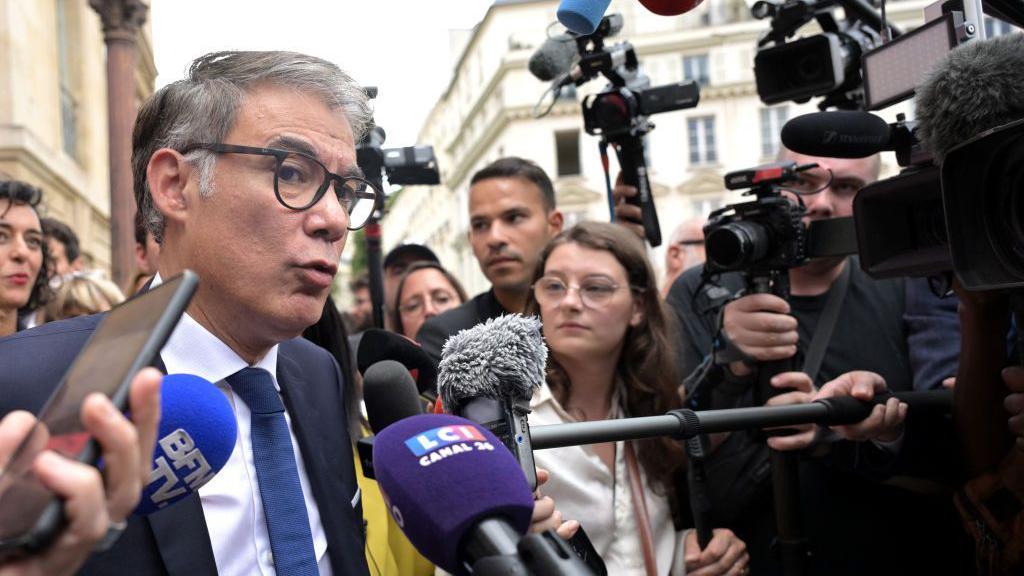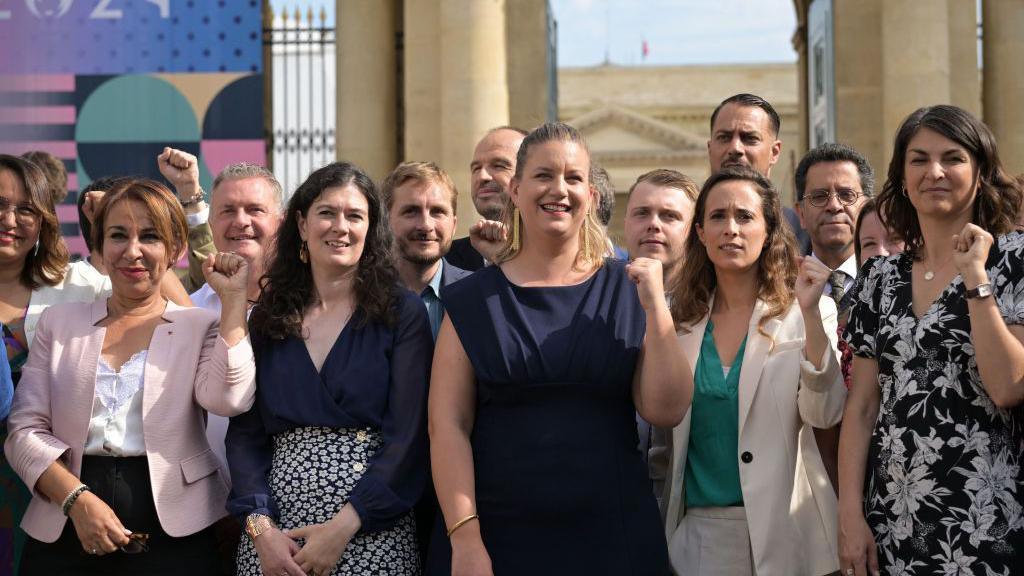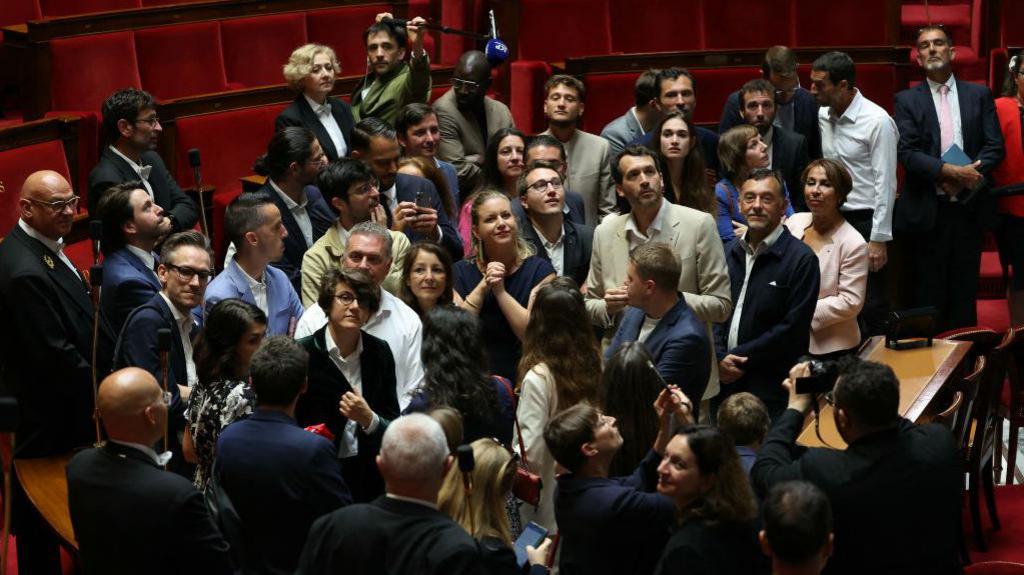French Socialist eyes PM job but deadlock persists

Olivier Faure spoke as he joined his party colleagues outside the National Assembly
- Published
The leader of France's Socialist party, Olivier Faure, has thrown his hat in the ring to be prime minister, after the left-wing alliance to which he belongs won Sunday's parliamentary election.
He said he was "ready to assume this function", but only as part of "the dialogue with our partners".
The leftist New Popular Front, which also includes Socialists, Greens and Communists, were the surprise winners on Sunday, but they have nowhere near enough seats to form a credible government by themselves.
Victorious MPs from the left-wing alliance arrived in parliament on Tuesday and called on President Emmanuel Macron to nominate a prime minister from their party.
Under French convention, the president names a prime minister from the winning party. However, Sunday's election has left the country in political deadlock, with no obvious route to a government.
The Popular Front won 182 seats, but the Macron alliance was not far behind with 168, while the far-right National Rally have 143, despite being favourites to win.
With three powerful blocs in French politics, none can form an outright majority of 289 in the 577-seat parliament without reaching out to either of the other two.
Without enough support to survive a "censure" vote of no confidence, there is little chance of any of a left-wing government surviving for long on its own.
There has been some concern among centrists inside the Macron alliance that the president has made no public comment since the election result. He is due to fly to Washington on Wednesday morning for a Nato summit, leaving the political deadlock behind.
The Macron camp, as much as the left, believes it can find a way of forming a minority government.
Instead of naming a new prime minister, the president asked outgoing Prime Minister Gabriel Attal to remain in office "for the time being" to ensure the stability of France. Mr Attal had gone to the Élysée Palace to hand in his resignation after Sunday's election defeat, but the president rejected it.
The Socialist leader's decision to put his name forward on Tuesday indicated tensions among the parties of the Popular Front, who had met the night before in a bid to agree a candidate for prime minister.

Mathilde Panot (C) and her colleagues were in buoyant mood after their election success
The veteran leader of the radical left France Unbowed (LFI), Jean-Luc Mélenchon, said his party had "no shortage of talent" and proceeded to name party leader Manuel Bompard and two colleagues Mathilde Panot and Clémence Guetté as potential candidates.
Others have suggested the leader of the Greens, Marine Tondelier, as a potential prime minister.
Mathilde Panot was among the LFI MPs who arrived at the National Assembly on Tuesday and did not refer to herself as a potential candidate.
However, she did call for the current caretaker prime minister, Gabriel Attal, to go.
"We demand that Emmanuel Macron respect the popular vote by choosing to name a prime minister who comes from the New Popular Front," Ms Panot announced outside the National Assembly.
Prosecutors probe Marine Le Pen campaign funding
- Published9 July 2024
What just happened in France's shock election?
- Published8 July 2024
With France's national Bastille Day five days away, Ms Panot said it was "impossible that we can continue with a prime minister who has been beaten three times in a row in elections".
But there is friction within her party as well and one MP who was purged from Jean-Luc Mélenchon's party, Clémentine Autain, said she was prepared to take on the post of prime minister if it were given to her.

The new arrivals from the New Popular Front posed for photos in the National Assembly
She is one of several ex-LFI MPs thrown out of the party who are setting up their own group, and they have urged Communists and Greens to join them. Ms Autain warned her former colleagues to reflect carefully that the Mélenchon purge could easily happen to others.
Members of the Ensemble alliance also met on Monday night to decide their next course of action after Sunday's extraordinary result.
An indication of their intentions came from centrist MP Sylvain Maillard, who told French TV they would try to form a minority government with other mainstream parties.
He said they would reach out to the "republican arc" that could run France for the next three years, when France is due to hold its next presidential and parliamentary elections.
Neither the far right nor LFI are seen as part of the France's republican mainstream, and LFI are understandably hostile to any attempt to form a government in which they play no part.